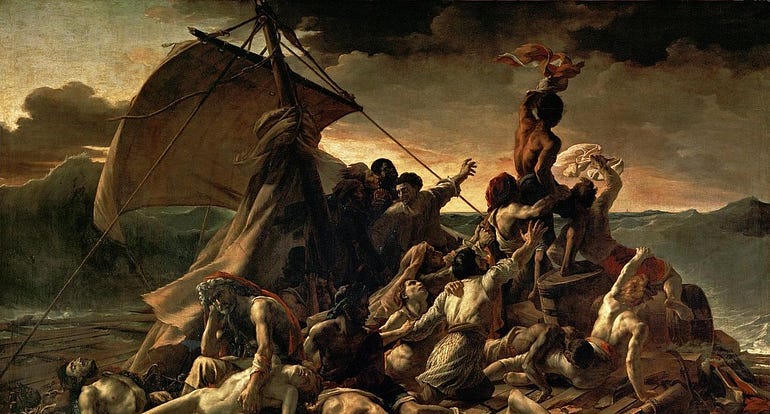From the Editor: For the Class of 2020, Launching Into Uncertainty

2020 marks the first time in a long time that there will be no Rusticationes held, the weeklong spoken-Latin gatherings held mostly in West Virginia. I’ve been thinking about them during this quarantine: they offer a opportunity to devote an entire week to friendship, with friends both old and new, all drawn by their love of Latin, and with little else to do but speak to each other. It seems like a heavenly bliss, after all the isolation of the past few months.
One of the rusticators, a wise Episcopalian priest, would say over and over again when people got upset about the state of their Latin, or started obsessing about making it better, or spoke as if there were nothing else in the world: Lingua Latina non est omnia. I never quite resolved in my head whether or not that line really was idiomatic Latin; it certainly sounds funny to my Latin ear. In the end I took that as part of the point. In English it makes sense enough. “The Latin Language is not all things.” Latin ain’t everything.
I use the same line on people now when they seem overly caught up in their linguistic progress, or when there are simply are more important issues to attend to.
But Latin — and, to a lesser extent for me, Greek — add a great deal to my life, and I am happy to have them as companions and consolations. They open the lives of other eras to me. When in my own life I have no precedent for my experiences, I can look to history and say: No, other people lived through this. We are not alone.
As it became clear that coronavirus was becoming a pandemic, none of us had any direct experience of anything like it to draw on. But I could draw on the memories embodied in the monuments of Rome: the Tiber Island was consecrated to medicine during a pandemic; all those cult statues of Apollo in our museums now were statues of the god of pandemics; the angel of Castel Sant’Angelo is sheathing his sword during a pandemic; there’s a church of San Rocco and a church of San Sebastiano, both plague saints. The pandemics are far between, but in a history so long as Rome’s they’re closer to many than few. And yet Rome goes on. We will too, eventually.
And in the unending struggle for justice, which has dominated the headlines recently, the past can console us both in its horrors — the sense that other generations have endured much more — and in its evidence of progress. The blood in the Colosseum has long since dried. The crucifixes set up along the Via Appia have long since rotted away. Humanity can and has gained real victories. And more are coming.
Over all that time, Latin has been one of the vehicles for the human story, and the Latin authors have been some of humanity’s companions. As centuries have turned to millennia, Latin has taken on a new role, as a kind of portal into perspective, a linguistic suggestion of the long view. In this form it has survived in graduation ceremonies, generally as a vestige, but a suggestive one for sure. It is a reminder of the useful consolations of history: that things have been far worse, and things can get better.
Since people have written graduation speeches in Latin for 2020, and since we here are always interested in new Latin, and since it seems that the class of 2020 is graduating into unusually bleak circumstances and could use some consolations, I thought it would be worthwhile to publish a few of these new Latin compositions. We have three of them which will be forthcoming, as our salute to the class of 2020. If people wish to submit others to bolster the collection, please do send them along to [email protected]. Links to the addresses as we publish them will appear at the end of this article.
As we publish these I cannot help but write a few words to the new graduates myself. In my first editorial for this publication, I spoke of how I saw teachers and Classicists and human beings in general as thrown into the middle of things, human links between the past and the future. So it is with the mess and injustice of the world. All babies are born into a world of injustice, none of which they caused. As they grow up the hope and effort of the people around them is that they become responsible adults, who fix the messes they themselves cause. This is maturity. But some go beyond that, and fix up messes they never caused, but found when they arrived. This is heroism. And when you have enough people doing that, things really do get better. Not everyone is going to be a hero, of course. But it’s not a bad thing to aim for. And at the very least, it’s good to know that the human condition will be the same for you as for everyone else who has ever lived: you will be inheriting a mess you did not cause. But on the other hand, you will also be participating in a miracle you did not cause either. I’ve found it worthwhile to remember the one and never forget the other.
John Byron Kuhner is the former president of The North American Institute of Living Latin Studies (SALVI) and editor of In Medias Res.
Sign up to receive email updates about new articles


Comment
Sign in with